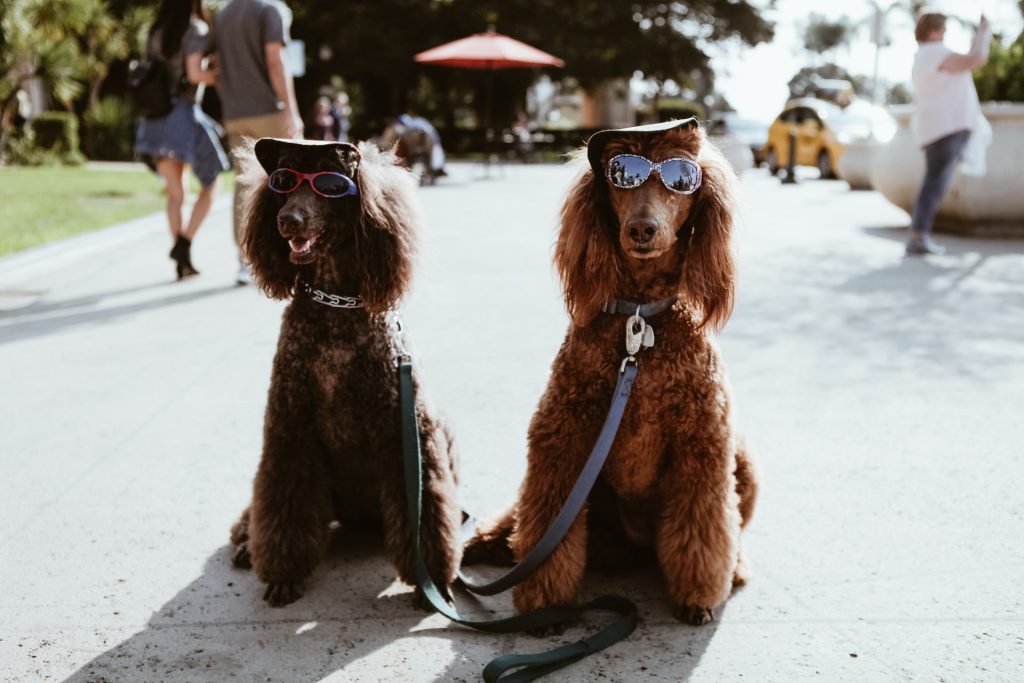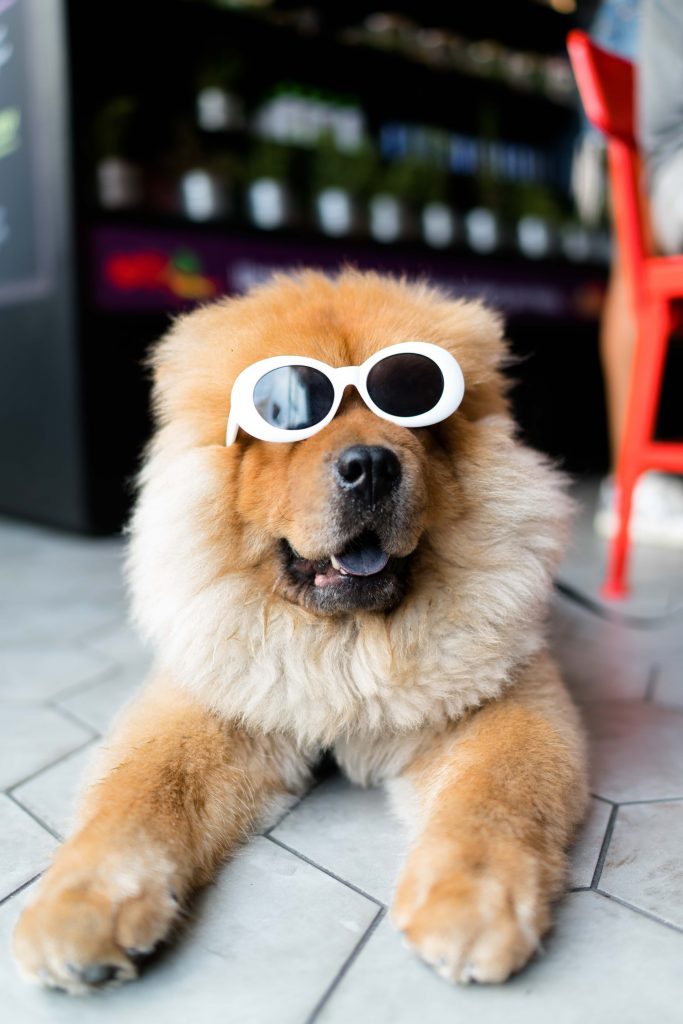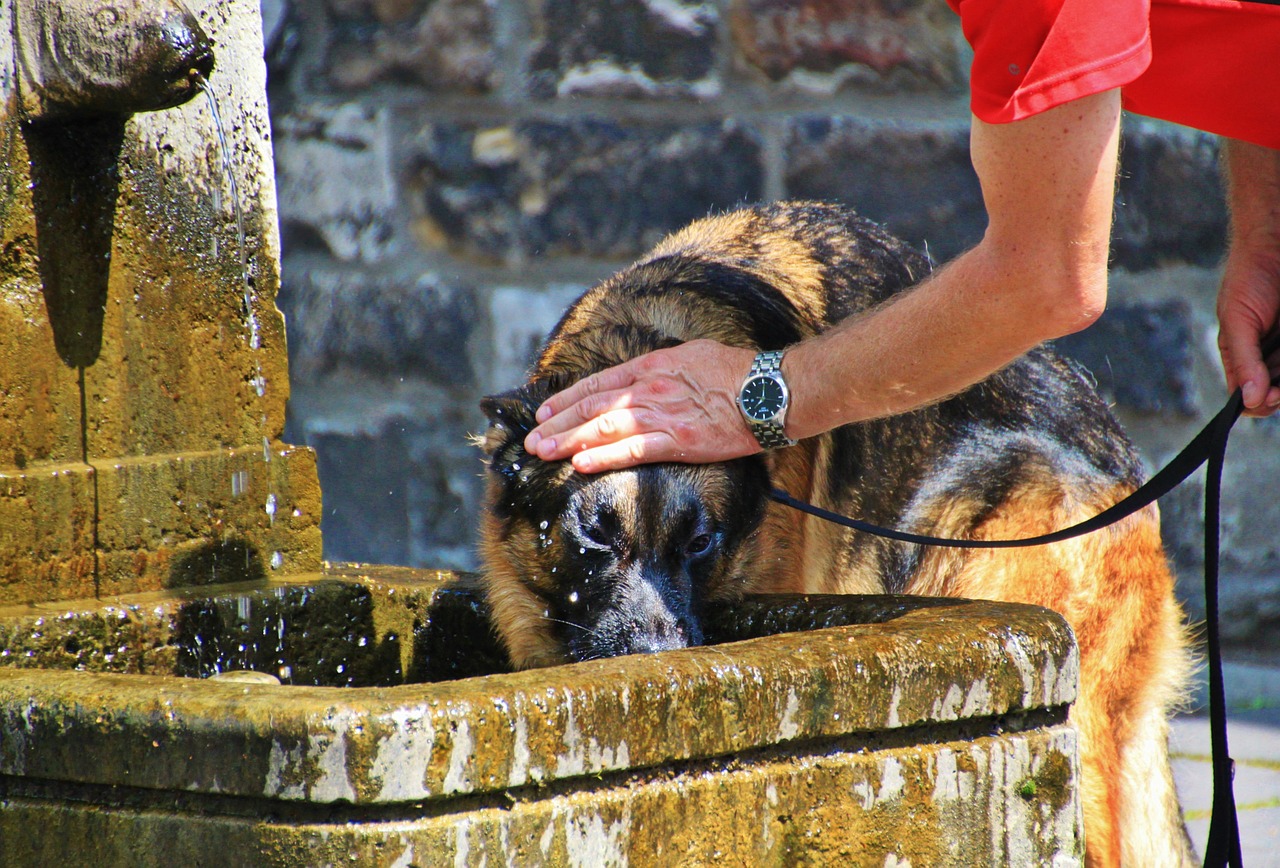Overheating dogs in summer
Summer is the best time to go on wild outdoor adventures with your dogs. We highly encourage all of pet sitters to do so in order to create pawesome memories and take breathtaking pictures. It’s actually one of Sidelick’s competitive advantages compared to pet hotels. However, hot temperatures can be a menace to the good unfolding of outing plans with dogs. To keep fun times fun, we’re sharing tips to keep your dogs as safe as possible, help you identify overheating hazards and recommend the best emergency plan of action.
What is overheating?
Dogs are a lot more sensitive to getting a heatstroke than humans. They regulate their temperature through panting, drooling and blood vessel dilation, not by sweating since they only sweat from their footpads. Extremely hot internal body temperatures can exceed the dog’s cooling ability and unfortunately cause thermal tissue damage.

Which dogs are most at risk?
All dogs are prone to overheating, however the following list is the most commonly hit:
- Dogs left in parked cars. Avoid this at all cost, even if you keep the windows open. If you can’t do otherwise, leave the AC on. However, keep a fraction of a window open just in case the dog locks you out of your car by inadvertently pressing the car lock button (true story!)
- Brachycephalic breeds (Pugs, French bulldogs, English bulldogs, etc.)
- Thick, double coated breeds (Huskies, German Shepherds, etc.)
- Puppies
- Senior dogs
- Dogs with pre-existing or chronic conditions
Overheating Prevention
A heat stroke can hit a dog in less than 30 minutes, even the dog has enough water and shade because heat and humidity play a great role. The best policy is prevention, so on a very hot day, it’s preferable to keep your dogs indoors.
- Always keep an eye on your dog
- Do not leave your dog in a car/closed crate. This summer, a pug death was reported dead in Beirut due to crate overheating.
- Avoid the hottest times of the day, stick to early morning or late evenings
- Keep walks short and outdoor play time short during extreme heat
- Allow for refreshing activities (swimming pool, sprinklers, etc.)
- Keep your dog hydrated and enforce regular drinking breaks

Signs of a Heat Stroke
If your dog was exposed to heat and you’re worried about a heat stroke, look for the following symptoms:
- Heavy panting
- Shortness of breath
- Excessive thirst
- Excessive drooling
- Increased pulse and heart rate
- Lethargy
- Eyes wide, anxious look
- Lack of response and coordination
- Stumbling
- Vomiting and diarrhea
- Purple tongue
- Unconsciousness
- Seizure
Emergency Response
If you suspect a heat stroke, you need to act fast. Your priority should be to cool the dog down while on your way to the closest veterinarian. The cooling process needs to be incremental, avoid thermal shock.
Here’s how you can help:
- Bring the dog indoors, with AC if possible
- Place the dog on a cool surface like tiling
- Ventilate or place a fan in front of the dog
- Moist the dog’s body using cool wet towels (not iced)
- Wet ears and paws with cool water
- If possible, monitor the dog’s temperature rectally every 4 minutes
- Stay close and attend the dog at all time
Do NOT:
- Use ice or ice cold water
- Overcool the dog. If the dog’s temperature goes down to 39.5oC, you can stop the cooling process until you get to a veterinarian.
- Force the dog to drink if he does not want to or is not responsive.
Will my dog be fine?
It essentially depends on the amount of time the pet spent with an elevated body temperature and if there was organ damage. Your veterinarian is the best person to assess if the dog has fully recovered and if there will be neurological sequels on the long run.
The safety of our beloved furry friends is our priority, and all of the Sidelick pet sitters and dog walkers are warned, trained and wary of overheating risks. Through awareness, we believe everyone should enjoy fun times with pets in the great outdoors, in all safety.










Leave a Reply